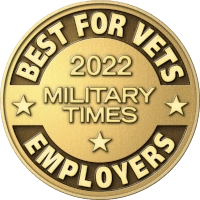Life Cycle Engineering Supports Development of New Biofuel Testing Qualifications for U.S. Navy
The Department of Defense (DOD) is the single largest consumer of oil within the United States, constituting roughly 80 percent of the government’s usage profile. With fossil fuel price volatility, “the DOD has had to do significant budget machinations,” said Joelle Simonpietri, U.S. Pacific Command’s operational manager. To counter the reliance on foreign oil, and the associated costs, the DOD has made it a priority to research alternative fuels that will reduce total cost, while also reducing greenhouse gas emissions. This “drop-in biofuel” that the Defense Department is pursuing is a more advanced biofuel that will directly replace diesel and jet fuels used in aircraft and ships.
Announcing energy goals and the Great Green Fleet
One of five energy goals announced in 2009 by the Secretary of the Navy was to demonstrate and deploy a “Great Green Fleet.” The fleet’s purpose is to showcase ships and aircraft using alternative fuel sources, like advanced biofuel blends, to improve combat capability and to increase energy security by addressing a significant military vulnerability: dependence on foreign oil.[1]
To make this a reality, the Navy needed to develop a qualification protocol for both types of fuels, F-76 and JP-5, used in the fleet. These protocols needed to place non-petroleum alternate fuel or blend with traditional fuels through extensive tests to ensure that it is truly a “drop-in” fuel that can be used with other traditional petroleum-derived fuels. To further add to the complexity, these fuels also needed to be able to work equally well with the current boiler, diesel and gas turbines used within the fleet. The Navy enlisted Life Cycle Engineering (LCE) to assist with completing the test protocols for this qualification process.
Qualification of synthetic biofuels
Once the qualification protocols were approved by all of the Navy stakeholders, LCE partnered with a diverse team of companies to help support the required testing. This team included equipment manufacturers, testing laboratories and logistical support services. In early 2011, LCE began providing testing support for two fuels – hydroprocessed renewable diesel and jet (HRD-76 and HRJ-5). These alternative fuels, which are derived from algae and other bio sources, are hydroprocessed to ensure they have similar characteristics as their petroleum counterparts and are then blended to meet all specification, fit-for-purpose and performance properties. LCE’s responsibility included providing boiler and diesel component testing as well as diesel full-scale testing.
LCE successfully expanded its role with the Navy in subsequent contracts to test additional F-76 and JP-5 non-petroleum alternatives including wood-derived Hydroprocessed Depolymerized Cellulistic Diesel and Jet (HDCD-76 and HDCJ-5), Synthetic Iso-Parrafin (SIP), and Alcohol-to-Jet (ATJ). All of these fuels are currently under review by the Navy for evaluation of the test results.
Finding success with alternative fuels
In the end, the Navy was able to identify synthetic hydrocarbons as an alternative fuel source for their Great Green Fleet. This was the first time in the Navy’s history that they were able to utilize a biofuel blend as a substitute for diesel to support a Navy ship.
This qualification will now provide an additional source of drop-in fuel that meets Navy requirements in case the flow of petroleum is disrupted – i.e. energy security. Also, since these fuels are typically derived from bio sources and often result in reduced exhaust emissions when compared to petroleum-derived sources, their use will also have a positive impact on the environment. Richard Kamin, Navy Fuels Lead, said of the project, “All that we have been able to accomplish to date would not have been possible without the expertise and dedication of yourself and the LCE team. Together, we have been able to literally create something, a cost-efficient and technically sound process, to approve alternative fuels for naval tactical applications that did not exist just a few years ago.”
For more information about improving operational and financial performance, please email LCE at info@LCE.com or visit www.LCE.com.
About LCE
Life Cycle Engineering (LCE) (www.LCE.com) provides consulting, engineering, applied technology and education solutions that deliver lasting results for private industry, the Department of Defense and other government organizations. The quality, expertise and dedication of our employees enable Life Cycle Engineering to serve as a trusted resource that helps people and organizations to achieve their full potential. Founded in 1976, LCE is headquartered in Charleston, South Carolina with offices across North America and experience around the globe.
Contact Us
Corporate Headquarters
Life Cycle Engineering
4360 Corporate Road
Charleston, SC 29405-7445
843.744.7110
info@LCE.com
[1]“Great Green Fleet,” http://greenfleet.dodlive.mil/energy/great-green-fleet/















